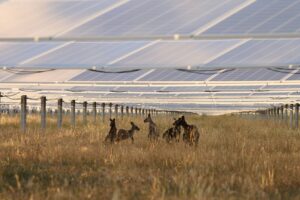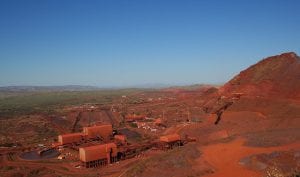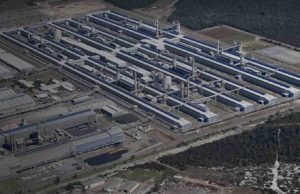A new report from progressive think tank The Australia Institute has found that cost remains an almost insurmountable nuclear power in Australia and it is becoming increasingly uncompetitive with lower cost renewable energy alternatives.
The Australia Institute found that the risk of nuclear accidents effectively made an Australian nuclear power plant uninsurable, with the high costs of insurance completely undermining the financial case for any proposed project.
“The biggest barrier to nuclear power in Australia is that it is uneconomic, the costs of establishing a nuclear industry simply don’t stack up,” the Australia Institute’s climate and energy program director Richie Merzian said.
“Insurance policies by Australia’s major insurers contain specific language excluding coverage of nuclear disasters; none will insure against nuclear incidents.”
The think tank has released its latest assessment of the prospects of an Australian nuclear industry ahead of its appearance before a parliamentary inquiry in Canberra. The research found that the cost of nuclear power is increasing and that recent experience has shown nuclear projects slow to construct and that adoption is falling in some countries.
The Australia Institute pointed to the fact that cheaper renewable energy technologies and the rapid falls in the costs of energy storage, meant there were alternative sources of zero-emissions electricity supply that made nuclear power unnecessary.
The report cited the example of the Hinkley C nuclear project in the United Kingdom, which as faced several delays and cost overruns while being expected to deliver electricity at a substantially higher price than renewable energy projects.
“Renewables, demand management and storage can meet Australian energy needs safely and at best-cost. In a country with no existing nuclear industry and vast renewable energy resources, it makes no economic sense to establish nuclear generation,” Merzian added.
“A sensible, fact based conversation about nuclear power in Australia must start in economics, and given the industry’s dismal economic outlook, really that is where the conversation should end.”
The Australia Institute was also pessimistic about the potential for Small Modular Reactors (SMR) to be used in a viable nuclear project, finding that they suffer from ‘diseconomies’ of scale, and are likely to remain more expensive than zero-emissions alternatives until at least beyond 2040.
In its submission to the nuclear inquiry, the Australian Energy Market Operator said that it believed it would take at least 15 years to get a Small Modular Reactor up and running in Australia.
The implication of this, AEMO said, was that nuclear power plants would only be a viable replacement for coal-fired power stations scheduled to close from around 2040 onwards, provided the economic and social acceptance challenges had been addressed.
“Based on this timeline, SMR technology may be an option for consideration for the replacement of the Bayswater and Tarong power stations over the next 20 years,” AEMO said.
AEMO also told the inquiry that a Small Modular Reactor would likely be substantially more expensive than renewables combined with storage.
“The levelised cost of electricity (LCOE) in 2020 of, say, wind with 6 hours of pumped hydro storage as a representative firmed renewable, is in the range of 100 $/MWh, whereas the estimate for LCOE of SMR technology is $250 to more than $300 per MWh. SMRs could be almost three times more expensive than firmed renewables.” AEMO said.
The nuclear power inquiry was criticised by the Clean Energy Council, which labelled it a ‘distraction’ from more pressing challenges facing the Australian energy market.
“It is beyond our comprehension as to why Australia would contemplate replacing one dirty energy production technology with another that produces large amounts of highly hazardous waste, when it could fulfil its objectives of zero emissions with technologies that are lower-cost, faster to develop and readily available now,” the Clean Energy Council said in its submission to the inquiry.
Nuclear power has long faced barriers in Australia including with lower social acceptance compared to other energy technologies and active opposition from environmental groups, notwithstanding current prohibitions under the Commonwealth Environment Protection and Biodiversity Conservation (EPBC) Act.
The Inquiry into the Prerequisites for Nuclear Energy in Australia was instigated in August by federal energy minster Angus Taylor following pressure from a backbenchers group led by Barnaby Joyce.
While allowing the inquiry to go ahead, the Morrison Government has said that it has no plans to lift the prohibition of nuclear power activities under the EPBC Act.









